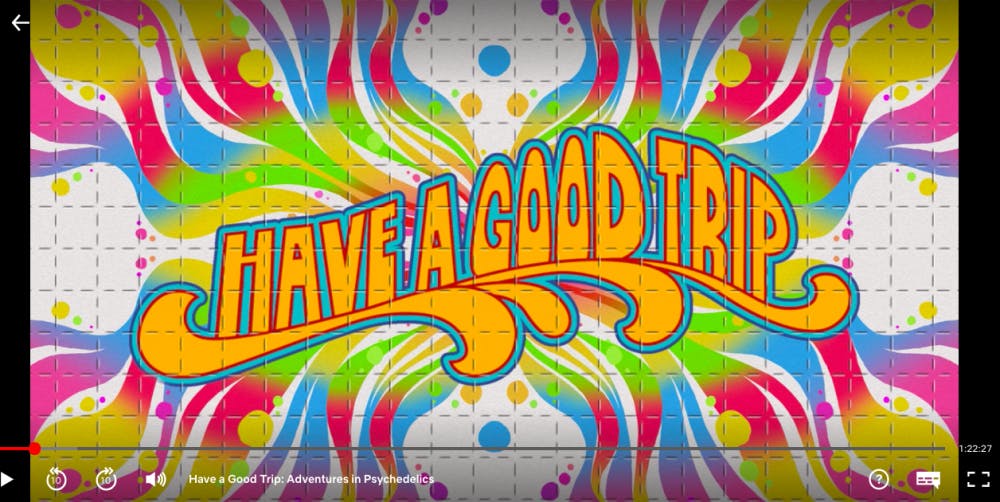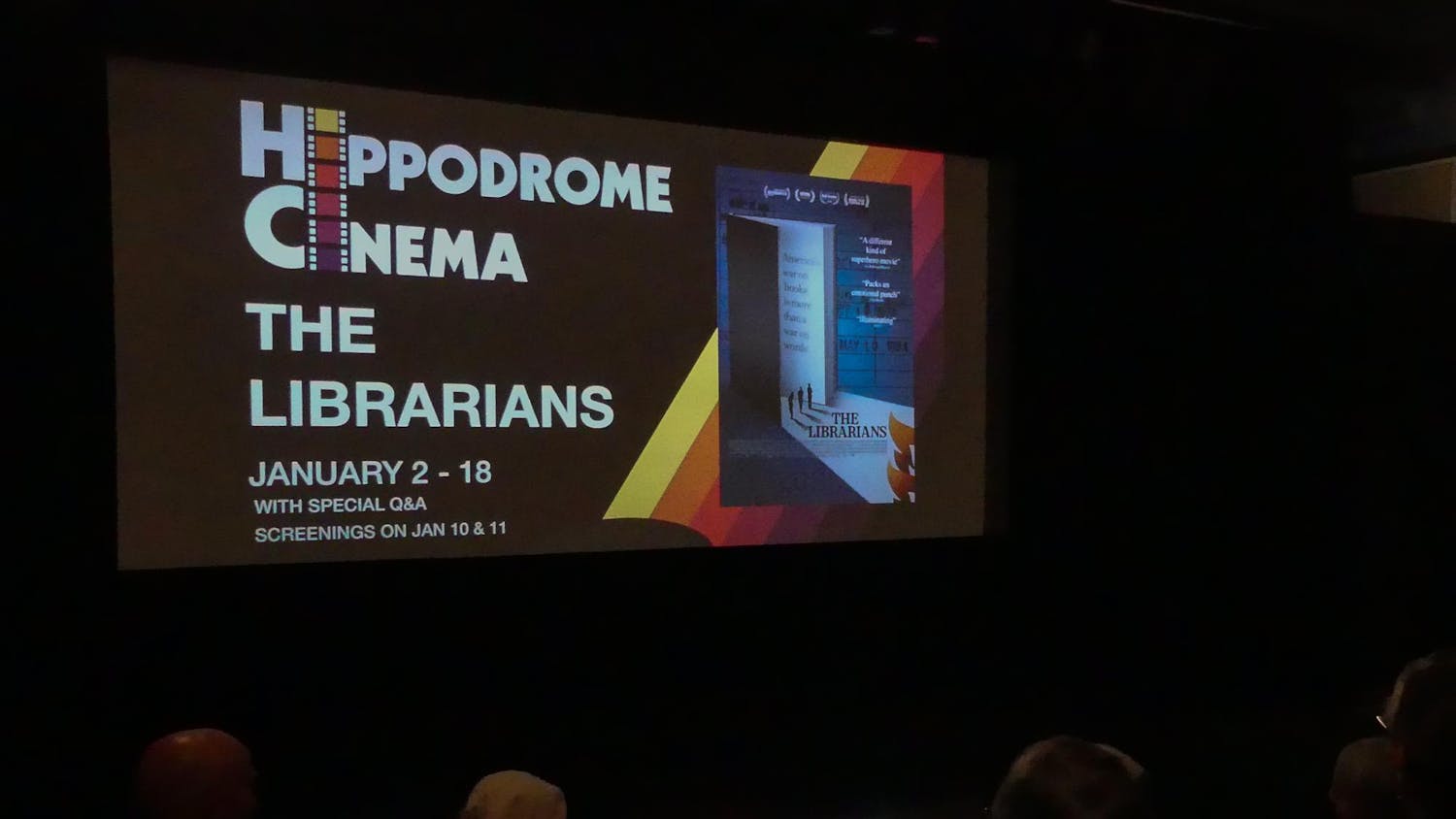Deepak Chopra, Sting, ASAP Rocky and more are among the world-renowned musicians, scientists, actors and artists featured in Netflix’s “Have a Good Trip,” a colorfully entertaining documentary that explores the world of psychedelic substances and seeks to discredit their previously institutionalized social stigmas.
“Have a Good Trip” aims to debunk the idea that psychedelics are a torturous one-way journey towards psychosis by interviewing beloved celebrities and animating their spiritual, orgasmic and rejuvenating experiences in the psychedelic realm. Director Donick Cary astutely centers the documentary on celebrities in order to attract their respective fan-bases and strengthen the pro-psychedelic theme, as fanatics have the tendency to idolize their opinions. The formatting was an absolute success, and “Have a Good Trip” climbed to Netflix’s top 10 most popular shows in America just a week after its release.
The documentary enlivens the public figures’ anecdotes, ranging from mystic and insightful to strictly hilarious, in a vibrant and psychedelic animation style. These stories depict psychedelics in a spiritual and fun manner, contradicting the government sponsored 1960s LSD propaganda that serves as the show’s introduction. The narrative elaborates on this contradiction by mocking the propaganda’s premises in a handful of satirical skits, hilariously enacted by cinema personalities like Adam Scott.
To reinforce this perspective of psychedelics through credibility, the documentary includes the professional input of Dr. Charles Grob, a UCLA psychiatry professor currently researching hallucinogenic therapy. Doing so, “Have a Good Trip” challenges the intimidating social preconceptions of psychedelics and instead paints them as fun substances with the therapeutic potential to spark a moral and spiritual renaissance in contemporary society.
Sting, Carrie Fisher, Sarah Silverman, Anthony Bourdain, ASAP Rocky, Nick Kroll and others featured in the documentary provide anecdotes explaining the intensifying and revealing nature of psychedelics, both in good and troubled mind states. The show explains that a psychedelic substance builds from the subject’s character, and so an unstable mindset is vulnerable to what is commonly labeled as a “bad trip.”
However, the show rejects what the government has depicted as an induced psychological disorder, a state of insanity and a point of no return. Instead, it insists that these trips are spiritual experiences in which the psychedelic prompts the subject to confront their innermost conflicts and sources of anxiety.
“Whenever I’ve had a bad trip, and I’ve had many, I’ve always realized that it was what I needed,” Sting said.
Reinforcing this theory, Carrie Fisher explains how using psychedelics allowed her to understand and recognize herself beyond the public eye. She said that “Princess Leia,” or fame itself, had dichotomized her sense of self (she lived as Leia instead of Carrie) and a psychedelic experience helped her deconstruct her disconnection.
“When I was first told I was bipolar, I went to see the doctor and I said, ‘Well I felt normal on acid,’” she said.
Needless to say, psychedelics are not only presented as a means of therapy or existential discovery, and the animated anecdotes featured in “Have a Good Trip” mostly depict the hilarity and orgasmic emotional intensity of the psychedelic realm.
ASAP Rocky saw a rainbow shoot out of his genitalia, and Nick Kroll shares his experience being the “kelp monster.” Sting heard the grass talk as ecstasy overcame him, and Carrie Fisher talked to an acorn for hours while she tried “hanging on” to Earth in the middle of Central Park. Paul Scheer absorbed a Van Gogh painting for hours on end. A vibrant and playful style of animation reminiscent of psychedelic culture brings these stories to life. Nevertheless, the structure of the documentary and style choices have not been exempt of disapproval.
“Have a Good Trip” has received wide criticism for its clear lack of logistic and scientific foundation. Nonetheless, by relying on the likability of public icons that many find as cool as they are credible, “Have a Good Trip” makes a good effort to debunk and reconstruct preconceived notions of psychedelics, consequently creating a basis for their normalization. The documentary shys away from detailed scientific information and instead relies on a playful structure composed of entertaining, animated anecdotes—engaging to otherwise disinterested young audiences—that pile onto each other to construct a new notion of the psychedelic experience. Formatted for newer generations who prefer entertainment over tedious information, “Have a Good Trip” gives way to a new widespread conception of psychedelics. Amid a legislative reform that shows promise for psychedelic therapy, “Have a Good Trip” convincingly renovates psychedelics’ reputation into an image representative of their spiritual, existential and therapeutic value.
Rate: 8/10
Contact Benjamin Delger at bdelger@ufl.edu. Follow him on Twitter @BenjaDelger.
“Have a Good Trip” aims to debunk the idea that psychedelics are a torturous one-way journey towards psychosis by interviewing beloved celebrities and animating their spiritual, orgasmic and rejuvenating experiences in the psychedelic realm.





